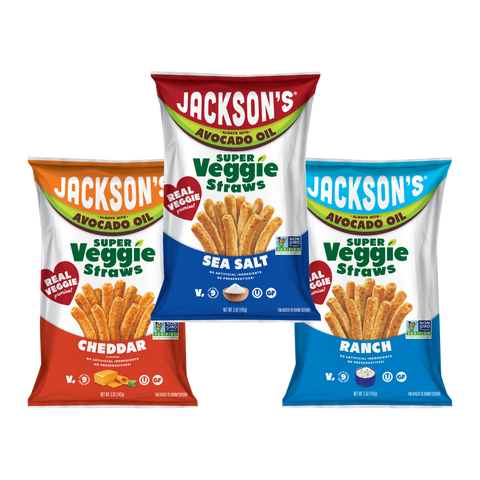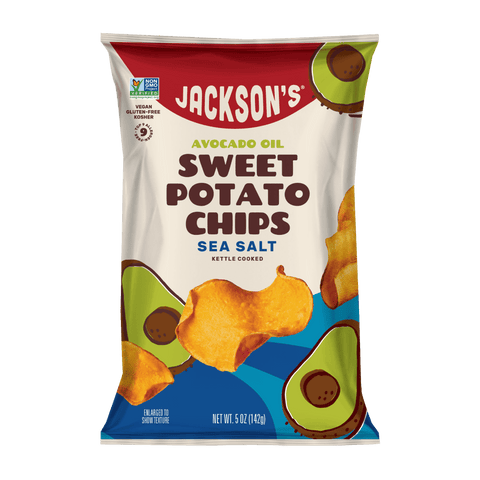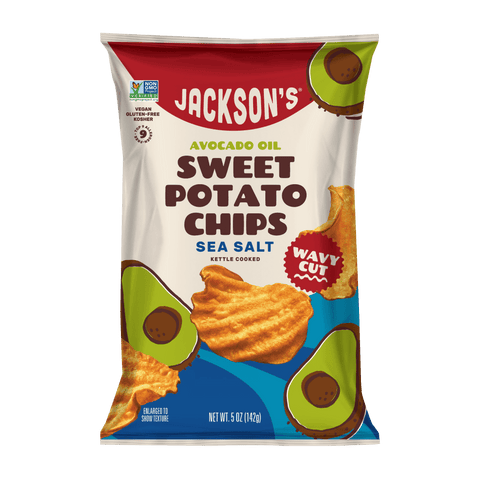Nightshades: Nutritious Blessing or Inflammatory Curse?

Nightshades. A family of plants that have captivated humans for centuries with their nutritional value and, in some cases, potentially toxic properties. From the unassuming potato to the hearty eggplant, nightshades are a family of foods that have been both celebrated and regarded with caution throughout history.
These seemingly innocuous fruits and veggies have been accused of igniting inflammation, exacerbating autoimmune diseases, and even...poisoning those who dare consume them. But nightshades also happen to be some of our most beloved culinary staples, bringing vibrant flavors and nutritious goodness to plates across the globe. So what's the real deal? Today we're pulling back the veil on the intriguing nightshade family.
What are nightshades? The nightshade family explained
The nightshade family, or Solanaceae, is a diverse group of plants that includes both edible and inedible varieties. While some nightshades are beloved culinary staples, others are known for their poisonous qualities, adding an air of mystery and intrigue to this botanical group.
Common nightshade vegetables and fruits
Nightshades are familiar foods that grace our plates and provide essential nutrients, flavors, and textures to countless dishes worldwide but can cause apprehension. Here are some of the most widely consumed nightshade fruits and vegetables.
- Tomatoes
- Potatoes
- Bell peppers
- Hot peppers
- Eggplants
- Tomatillos
- Paprika and cayenne pepper (made from certain nightshade peppers)
- Ashwagandha
- Goji berries
- Garden huckleberries
- Naranjillas (little orange fruits from Peru/Ecuador)
- Tamarillo
- Pepinos (small striped fruits)
- Ground cherries
- Tomatillos
It's important to note that sweet potatoes, despite their name, are not part of the nightshade family. They belong to the morning glory family and are safe for those following a nightshade-free diet.
Nightshades and Health
The relationship between nightshades and human health has been a topic of ongoing debate. While these plants are generally considered safe for most people, some individuals may experience adverse reactions or sensitivities to nightshades, particularly those with autoimmune conditions or inflammatory bowel diseases.
Nightshades and inflammatory bowel disease
Several studies have suggested a potential link between nightshade consumption and the exacerbation of symptoms in individuals with inflammatory bowel diseases like Crohn's disease and ulcerative colitis. However, more research is needed to establish a definitive causal relationship.
The connection between nightshades and autoimmune conditions
Nightshades have been implicated in potentially aggravating symptoms of certain autoimmune conditions, such as rheumatoid arthritis, psoriasis, and Hashimoto's thyroiditis. This association is believed to be due to the presence of compounds like solanine and glycoalkaloids, which may trigger inflammatory responses in some individuals.
Sensitivities and allergies
While not as common as other food allergies, some people may experience nightshade sensitivities or allergies. These reactions can range from mild digestive discomfort to more severe symptoms like hives, swelling, or respiratory issues.
Nightshades and histamines
Some nightshade plants, particularly tomatoes and eggplants, contain higher levels of histamines. For individuals with histamine intolerance, consuming these foods may exacerbate symptoms like headaches, skin rashes, and digestive problems.
Edible nightshades vs. deadly nightshades
While many nightshade plants are edible and widely consumed, it's important to note that some varieties, such as belladonna (deadly nightshade) and datura (jimsonweed), are highly toxic and potentially lethal if ingested.
Individuals with nightshade intolerance may experience a variety of symptoms, including joint pain, muscle aches, digestive issues, skin rashes, fatigue, and inflammation. However, it's important to note that these symptoms can also be attributed to other factors, and proper medical evaluation is recommended.

Eliminating nightshades from your diet
The elimination diet is a popular approach used to identify potential food sensitivities or intolerances. Nightshades are often one of the food groups eliminated during this process, as they are known to cause reactions in some individuals.
The elimination diet involves removing suspected inflammatory foods from your diet for a period of time (usually 2-6 weeks), then methodically reintroducing them one by one to identify any foods that may be causing issues.
Substitutes for common nightshade vegetables
For those following a nightshade-free diet, there are various substitutes available for popular nightshade vegetables. Sweet potatoes, for example, can be used in place of regular potatoes in many recipes. Sweet potatoes are a delicious and nutritious alternative to regular potatoes. They can be roasted, mashed, or used in soups and snacks, providing a vibrant orange hue and a subtly sweet flavor to your food. Below are others.
For those needing to avoid nightshades, there are substitutes available:
- Instead of potatoes: use sweet potatoes, yams, parsnips, turnips, cauliflower, squashes
- Instead of tomatoes: use red bell peppers, carrots, beets, pumpkin
- Instead of eggplant: use zucchini, mushrooms, artichokes
- Instead of peppers: use radishes, onions, garlic
- Instead of goji berries: use other berries like strawberries or raspberries
The key is getting creative with spices, herbs, and alternate veggies to replicate the flavors and textures you'd miss from nightshades. With a little practice, you can make delicious nightshade-free versions of all your favorite dishes.
Nightshades Around the World
Nightshades have been an integral part of Native American diets for centuries. The humble potato, for example, was domesticated in the Andes region of South America and later introduced to North America, where it became a staple crop.
South and Central America are home to a diverse array of nightshade species, many of which have been cultivated and consumed for thousands of years. From the spicy aji peppers of Peru to the tomatillos of Mexico, these regions have embraced nightshades in their culinary traditions.
The prevalence and cultural significance of nightshades vary across different regions of the world. While some cuisines heavily incorporate these plants, others have a more limited use or avoidance due to traditional beliefs or dietary preferences.
Human Consumption of Nightshades
Nightshades have played a pivotal role in human diets and culinary traditions for millennia. From the humble potato to the fiery habanero, these plants have captivated our taste buds and nourished generations. However, as with any food group, it's essential to listen to our bodies and be mindful of potential sensitivities or intolerances.
The nutritional benefits of nightshade vegetables
Despite the controversies surrounding nightshades, many of these vegetables and fruits are packed with essential vitamins, minerals, and antioxidants. Tomatoes, for instance, are an excellent source of vitamin C, potassium, and lycopene, a powerful antioxidant.
Nightshades uses outside of food
Beyond their culinary applications, nightshade plants have been used for medicinal and ceremonial purposes throughout history. Some species, like tobacco, have played significant roles in various cultures and traditions.
Nightshades have also been featured in folklore and mythology across various cultures. From the witch's brew of Shakespeare's Macbeth to the mythical powers attributed to the deadly nightshade, these plants have captivated the human imagination for centuries.
While some nightshade plants are prized for their nutritional value, others have been exploited for their potent medicinal properties or even their potential as poisons. The infamous belladonna, for instance, has been used in traditional medicine for its pain-relieving and anti-spasmodic effects, but its misuse can be deadly.
The Takeaway on Nightshades
In conclusion, the world of nightshades is a fascinating and complex one, offering a delicious array of culinary delights while also harboring potential risks for those with sensitivities or allergies. As with any aspect of our diets, moderation and mindfulness are key. Whether you embrace nightshades wholeheartedly or opt for a nightshade-free lifestyle, the choice is yours to make, guided by your personal preferences and health considerations. If you are trying to avoid nightshades but still love chips, consider trying Jackson’s Sea Salt Sweet Potato Chips or Unsalted Sweet Potato Kettle Chips (while staying clear of the Habanero Nacho and Spicy Jalapeño flavors).
No Seedy Oils Here
Avocado Oil Goodness Meets Irresistible Flavor - No Seed Oils Here!
-

 8 Pack New Arrival!Variety Pack Super Veggie Straws in Avocado Oil 5oz (Pack of 8)
8 Pack New Arrival!Variety Pack Super Veggie Straws in Avocado Oil 5oz (Pack of 8)Variety Pack
Super Veggie Straws in Avocado Oil
- Size
- 5oz bags
- Regular price
- $35.99
- Sale price
- $35.99
- Regular price
-
$35.99 (Liquid error (snippets/product-price line 131): divided by 0 per bag) - Unit price
- per
-

 8 Pack Best SellerSea Salt Sweet Potato Chips in Avocado Oil 5oz (Pack of 8)
8 Pack Best SellerSea Salt Sweet Potato Chips in Avocado Oil 5oz (Pack of 8)Sea Salt
Sweet Potato Chips in Avocado Oil
- Size
- 5oz bags
- Regular price
- $35.99
- Sale price
- $35.99
- Regular price
-
$35.99 (Liquid error (snippets/product-price line 131): divided by 0 per bag) - Unit price
- per
-

 8 PackWavy Sea Salt Sweet Potato Chips in Avocado Oil 5oz (Pack of 8)
8 PackWavy Sea Salt Sweet Potato Chips in Avocado Oil 5oz (Pack of 8)Wavy Sea Salt
Sweet Potato Chips in Avocado Oil
- Size
- 5oz bags
- Regular price
- $35.99
- Sale price
- $35.99
- Regular price
-
$35.99 (Liquid error (snippets/product-price line 131): divided by 0 per bag) - Unit price
- per
-

 8 PackVariety Pack Kettle Chips in Avocado Oil 5oz (Pack of 8)
8 PackVariety Pack Kettle Chips in Avocado Oil 5oz (Pack of 8)Variety Pack
Kettle Chips in Avocado Oil
- Size
- 5oz bags
- Regular price
- $35.99
- Sale price
- $35.99
- Regular price
-
$35.99 (Liquid error (snippets/product-price line 131): divided by 0 per bag) - Unit price
- per






